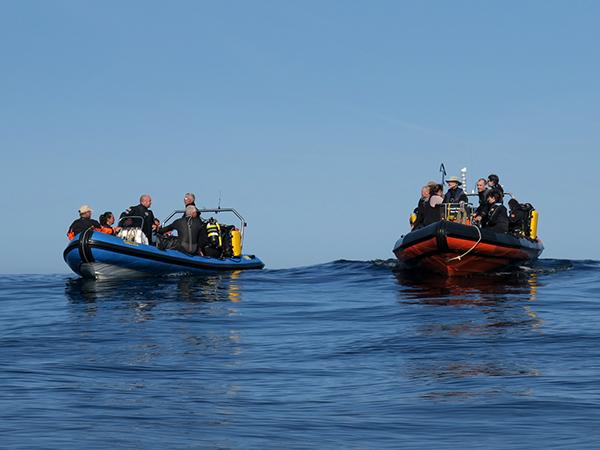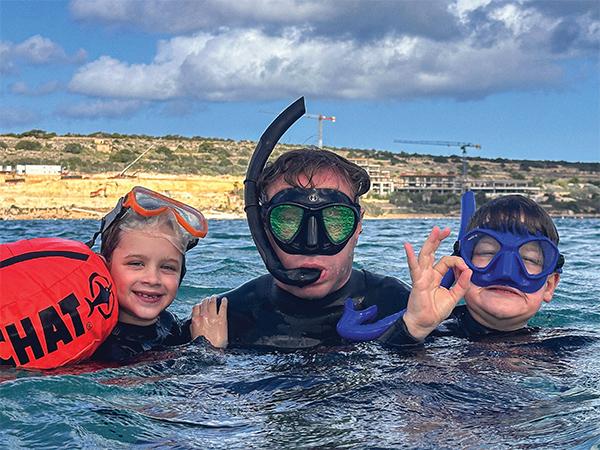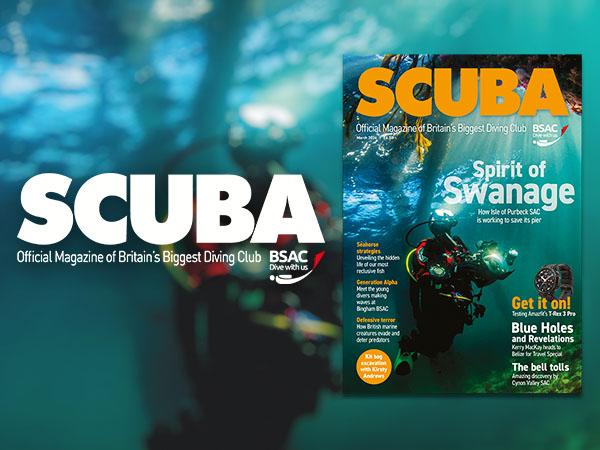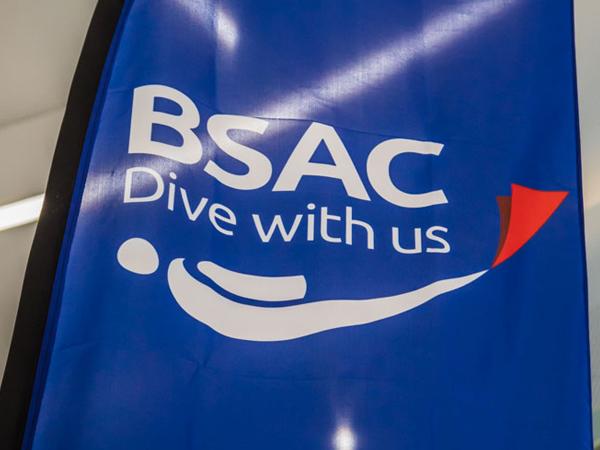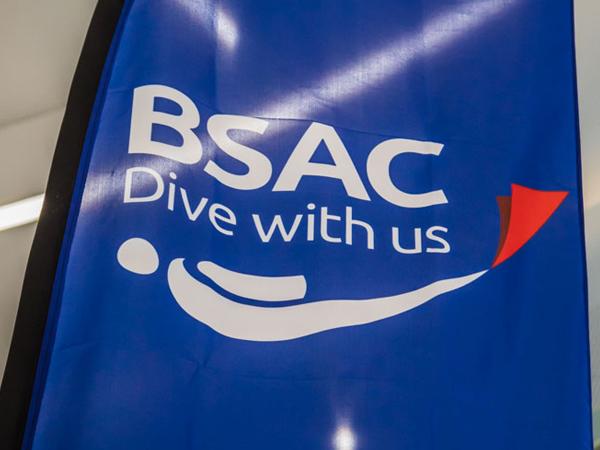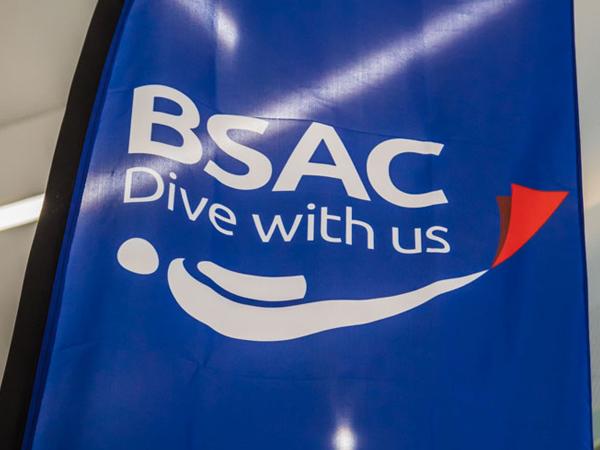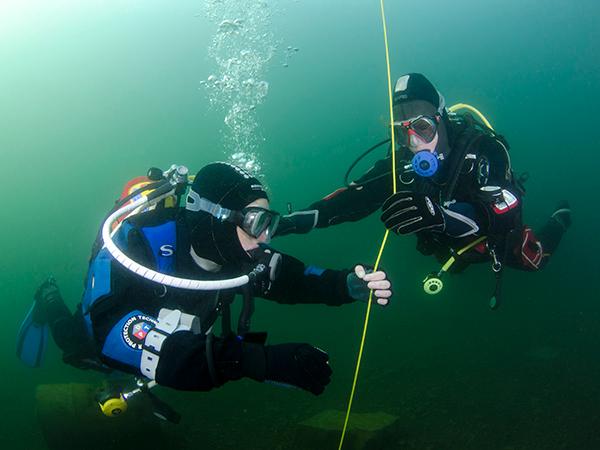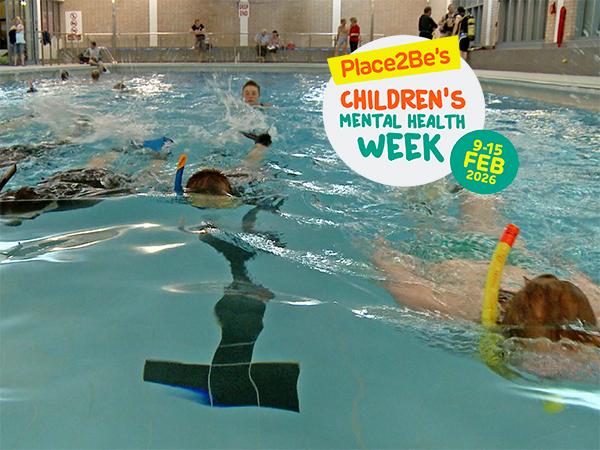BSAC's Annual General Meeting (AGM) will be hosted online on Saturday 11 May at 10am this year. We hope to see you there!
Thank you to all who sent questions in ahead of the AGM, please see answers from the BSAC team below. You can navigate to a topic using the quick links:
Navigation
Membership
Are BSAC able to breakdown annual membership costs to assure members it continues to provide value for money.
We are not able to split the membership fee as BSAC subsidise the membership subs from other areas of income, e.g. shop, licensees, centres income.
Community
What is the diversity of national background at BSAC and the average age for current members?
The average age of current BSAC members is 46.
| Top 20 countries by nationality | ||||
| England | 18,654 | Singapore | 91 | |
| Scotland | 1,527 | Malaysia | 88 | |
| Wales | 1,058 | Netherlands | 77 | |
| Egypt | 872 | Hong Kong | 72 | |
| Northern Ireland | 522 | Qatar | 67 | |
| Australia | 268 | Malta | 62 | |
| Republic of Ireland | 204 | New Zealand | 61 | |
| Germany | 203 | United Arab Emirates | 55 | |
| Gibraltar | 114 | Oman | 53 | |
| United States | 102 | France | 51 | |
While the BSAC works hard for its members, there is a need to not only pass down the latest updates and training but in their own marketing. Branches need to be helped with how they can promote and attract new members. As an example, Has any club actually canvased their local area. A courtesy door knock and leaflet drop. This serves many roles, team building, club and self confidence, community awareness and ultimately longevity for the club. It is also relatively cheap. Should there be a course for this?
Supporting clubs with the recruitment and retention of members is very important to BSAC. There is extensive support for this online in the ‘Grow your club’ web section (www.bsac.com/growyourclub). Digital marketing techniques (as described in the online section) can be very effective at recruiting new members. However, that’s not to say that more traditional methods don’t have their place. We don’t often hear clubs doing leaflet drops. However, printing leaflets and organising club members to distribute them is worth a go if you don’t spend much money initially, to test it. We could look to pilot a leaflet design for you and worth with you to test it. If it works well, we could look to roll the concept and support out to other clubs. Please get in touch with marketing@bsac.com if you’d like to progress.
What can BSAC learn from other diving organisations to grow its membership?
Naturally, BSAC keeps an eye on other diving organisations and can gain insights from other organisations’ successes and ways of engaging new and existing audiences. Many diving organisations have seen considerable development in digitising marketing, products and services. Plus, efforts to embrace conservation to engage audiences and work to attract younger people. These are all useful developments for BSAC to keep an eye on and potentially learn from. These areas are important to us and are component parts of the current strategic planning. There’s also a lot to be said for keeping abreast of other membership-based not-for-profit Sports Governing Bodies (NGBs). Other NGB initiatives tend to focus on removing barriers to entry, making the sports more accessible and inclusive, and providing opportunities for skill development and progression to add value for their communities. These are also areas that we can learn from with the view of making are offerings more accessible. The current strategy can be viewed at www.bsac.com/strategy. Feedback is always welcome at strategy@bsac.com.
What will be done to make female divers feel more welcome and they are not ‘imposing’. I’ve been diving for 30 years and feel that BSAC is way more this way than PADI. As an AI with PADI I’ve been made to start as a Sports Diver again. Why? With thousands of dives, having been part owner of a dive centre etc. My dive club are great but it was hard to break into the ‘clique’ and you need to tone down being female ALL the time. God forbid you would want to rinse out your hair after a dive!!! But it’s ok for all the man to swig beer all night before dives and be very overweight and unfit??? Middle class, large white men still seem to dominate. It’s 2024 not 1924….where’s the diversity.
Firstly, we are sorry to hear that you have had a disappointing experience in terms of the ‘welcome’. Clubs can vary a lot and we do always suggest it’s worth visiting more than one with the hopes of finding one that’s the best fit. Clubs have different mixes of genders, ages, facilities, personalities and many more things, meaning different clubs offer different experiences. We are currently male dominated with only 27% of our membership being female, we are not alone in this in the sport of scuba diving. BSAC is committed to the longer-term goal of increasing the number of women in our community; there are so many benefits of having gender-diverse clubs. Sport England says in order to attract and retain women to your club/organisation, it’s important to recognise that they often experience different motivations and barriers to men when it comes to taking part in sport and physical activity. The ‘Women in BSAC’ web section (at www.bsac.com/women) was written with practical guidance in mind and is shared with Branch Officers and others to raise awareness and understand what it takes to deliver a positive experience for all in a club. We will build on this and continue efforts to raise awareness of the benefits of diversity and what it takes to be inclusive.
Would each member of the Council give one concrete idea for attracting young people into BSAC clubs
Attracting young people into BSAC is a key part of our ongoing strategy which BSAC Council routinely discuss as a group. On BSAC website there is an online support section, ‘Youth Engagement Hub’, that does give ideas for attracting young people into BSAC clubs. It was put together to support clubs in attracting/recruiting and retaining young people aged 12 and up. We consulted successful clubs and Sport England to curate ideas for attracting young people to BSAC clubs before creating that section. Please visit www.bsac.com/YEH to find out more.
What is the BSAC making from advertising per annum and can this reduce annual membership fees.
The main advertising revenue stream from a BSAC asset will be SCUBA magazine advertising. SCUBA magazine is managed by a contracted publisher so BSAC does not directly receive the advertising revenue from that. However, the revenue does enable BSAC to negotiate a more competitive rate for the production of the magazine, as the revenue offsets the publisher’s costs. BSAC does have a few other advertising revenue streams such as the sponsors at the upcoming BSAC Diving Conference and other ad hoc advertising or sponsorship packages. For the conference, rather than subsidising or reducing membership fees, that income is used towards the event so we can deliver the best possible day for attendees.
For clarity, membership fees are set by the Board and a host of considerations go into making those decisions such as cost of delivering membership (insurance, SCUBA magazine, support to clubs/members, staff, volunteer expenses etc).
I’d like to draw a comparison between BSAC and the Cycle Tourist Club (CTC). Both have a similar club structures where the club’s support forms the backbone of the organisation. After 130 years as the CTC it was rebranded Cycling UK. It did this in an effort to reach more people and become more inclusive. In doing so It has now become more Corporate and become a Top Down organisation and the whole club identity has virtually disappeared. Is there a danger that BSAC will go the same way in order to reach more people and increase membership?
Thanks for sharing the observation. It is true that BSAC is working towards being more inclusive, offering choice and reaching more people. However, BSAC would not look to take steps to do that at the cost of our club network and community feel. The club network is BSAC’s strength, and our future success is linked with supporting that network. When BSAC rebranded in 2017 we did consider the idea of changing name, mainly as the general public rarely use the term ‘sub aqua’. However, following consultation with members and clubs it was firmly decided that we would not make a change, and we simply ‘refreshed’ the look and feel of the logo and branding instead. It remains the case that engaging the community on these kinds of potential changes, such as name change, is critical.
While the Female and hopefully DE&I membership percentage is still on the rise, does the ongoing drop in overall membership not signal that we are disproportionally losing the old stereotypical BSAC Diver, Middle-Aged White Male? Should this be addressed openly or is this a toxic topic?
Of the new members BSAC recruited in 2023 38% were female, in 2022 that figure was 34% so there are some signs that the organisation is heading in the right direction in terms of attracting a more gender diverse audience. Despite that, the gender balance of the total membership has been fairly static, with around 26-27% female and 73-74% male for several years.
DEMA (Diving Equipment & Marketing Association) reported that women and girls accounted for 39% of all US entry level courses in 2018 (that year for BSAC was 33%). When they looked beyond entry level, the commercial agencies had a much less diverse gender split, with DEMA reporting just 26% being female in the US.
So, there is an argument that BSAC is perhaps not so different to our commercial counterparts on attracting women to the sport (entry level) and continuing training. It does however seem clear that the sport of scuba diving (i.e. all agencies), is not particularly good at retaining women.
BSAC will continue to look at what it can do to deliver an attractive and sustainable proposition for women and girls. This needs to be based on understanding the barriers and motivations that impact women.
We don’t believe this is a toxic subject if talked about in an open and respectful way. Everybody needs to feel welcome in our community. It is important that we all work towards delivering an accessible and positive experience for all.
How do we encourage clubs to dive local waters rather than organise trips, which are expensive and are limited in numbers?
The BSAC community by nature offers members the ability to meet up with locally-based divers so we think being part of a BSAC club is a good first step! As an organisation we do of course promote BSAC diving substantially, with the aim of opening the eyes of people who may choose to just dive overseas.
In terms of encouraging club members to dive local waters, here are few thoughts you may wish to try:
- Foster a conservation connection with an area via clean-up initiatives or other conservation projects. Or perhaps adopting a local wreck?
- Have a member (or members) deliver a talk on the local diving and waters - marine life, wrecks, historical significance of nearby waters? Share personal anecdotes, photographs and testimonials from members who have explored nearby waters? This would all be great for your website and social media channels too!
- Highlight the financial benefits of diving locally, such as reduced travel expenses and less time off work.
- Perhaps look at an incentive programme or rewards for members who participate in local diving activities? Perhaps recognise and celebrate achievements, such as completing a certain number of local dives or contributing to local conservation efforts?
How does BSAC plan to make UK diving more sustainable?
BSAC recognises that we are in a climate and biodiversity emergency, and life on earth is under threat. Our environment statement details our ambition to minimise our impact and champion the cause for better stewardship of our seas and the environment.
We recently shared with all members the ‘BSAC diver and snorkeller guidelines to protect our seas’. The guidelines are for our community to think about, and perhaps incorporate into their diving and snorkelling practices to help protect and preserve our diverse marine environment.
Our work in this area is ongoing but since 2020 BSAC has placed the environment at the centre of its mission and values. However, BSAC's ongoing approach to enhancing the sustainability of UK diving will involve:
- Educating and supporting divers about the importance of marine conservation and more sustainable diving practices.
- Encourage the community to follow BSAC’s ‘Diver and snorkeller guidelines to protect our seas’ that emphasises responsible diving behaviours.
- Support conservation projects aimed at preserving marine ecosystems, restoring habitats and protecting vulnerable species in UK waters. (Projects such as BSAC Operation Oyster for example)
- Collaborate with agencies, environmental organisations, and local communities to develop and implement policies and initiatives that promote sustainable diving practices and protect marine biodiversity.
- Support scientific research and monitoring efforts to assess the health of UK waters, identify areas of concern and inform conservation and management strategies. (projects such as BSAC Shore Surveyor and Underwater Surveyor).
Training
Do BSAC recognise that the changes to the training scheme over recent years to allow Sports Divers to dive deeper and also to progress directly down the technical route has reduced the number of members progressing to Dive Leader and beyond?
This has the potential to impact the running of the branches as it will lead to a reduction in the number of future dive managers and also branch officers, an issue that is already becoming a problem in some branches that are having difficulty filling committee roles. What are BSAC planning to do to address this developing concern?
The numbers for both Sports Diver and Dive Leader have remained consistent excluding the two Covid Years 2020 and 2021. There is no evidence currently to suggest any changes following the change to Sports Diver.
At this stage no evidence suggests fewer people are completing Dive Leader. Dive Leader still remains the entry level into instruction and the new Dive Leader Training was designed to cover the necessary training required for this level of qualification, whilst simplifying the qualification dives and experience. BSAC will monitor numbers to see if any variation does become apparent in the future and raise any concerns or changes to the National Diving Committee.
Are there any plans for a sidemount course?
Yes there are plans for a sidemount course the initial outline is in place and will be picked up once the revisions to the current Twin-Set course have been released.
Has there been any progress on a DPV course?
No there are no current plans for a DPV course.
Are there plans for more or all theoretical portion of BSAC Certifications to be available online and globally for members?
Currently all core Diver Training Grades except Advanced Diver have online theory available globally. Advanced Diver and Skill Development Courses will be available via online learning in due course. NDC are currently reviewing the Instructor Training Scheme and online learning options are being considered for parts of these courses in the review.
How does BSAC intend on driving safe diving practices. What campaigns will you put in place to achieve safe diving excellence in the coming years?
Safe Diving Practices is at the heart of BSAC diving. BSAC courses all contain elements that contribute to safe diving and the organisation works with other industry organisations to share information and best practice that is then added to materials and educating divers and snorkellers. The annual incident report is compiled to help use learn through the data gathered and make changes where necessary. We intend to review how we can further utilise this information for the underwater community and our safety campaigns will be driven by current data and trends.
When will BSAC recognise higher grade instructors from other agencies for crossover to BSAC Advance Instructors.
BSAC will crossover instructor grades with matching skill sets. The current BSAC Advanced Instructor Syllabus contains a number of different elements, often not covered by commercial agency higher instructor grades as Advanced Instructor is designed around higher level branch boat and project diving. BSAC constantly reviews and compares other agency qualifications and will crossover matching skill sets to a qualification. BSAC also takes into account a combination of Instructor Qualifications. This is looked at on a qualification by qualification basis.
How does BSAC UK plan to help international clubs going forwards, instructor training and similar is a major hurdle for alot of clubs outside of the UK
Plans currently include utilising online delivery more for instructor development, growing the network of Instructor Trainers and Coaches to support self-sufficiency and utilising the travelling Instructor Trainers we have to maximise opportunities for Instructor
With the campaign to increase the number of instructors, will BSAC consider allowing instructor assessments to be arranged at local level & conducted by an instructor a grade above those assessed ie PIE or TIE arranged by local club & examined by an AI. This would allow greater instructor uptake at minimal cost to the candidate. The current model sees candidates spending several hundreds of pounds & volunteer goodwill fade.
TIE events are now available online so travel is no longer required. NDC are currently reviewing the Instructor Training Scheme. BSAC Instructor Trainers are aligned with ISO standards and those standards have specific requirements we adhere to and have a clear audit process – in the review these need to be looked at carefully to ensure compliance but the review team are looking at how to deliver quality training at the best value to volunteers and looking at the potential of a number of different options.
My own experience of a BSAC club was that the training was well below the standards quite clearly explained within BSAC's own instructor materials (which I could only access following an IFC). Does BSAC intend to quality control clubs, as there appears to be a huge variation in instructional quality? If that is not possible, could more information be available for students to see, so they can challenge when they are being let down by instructors who do not follow BSAC's standards and teaching guidelines, often resulting in students qualifying whilst not meeting ISO standards.
We’re sorry to hear you felt you did not have a good experience, but we also hear a lot about excellent training in branches. BSAC works on a solid foundation of training from NDO-NDC-Instructor Trainers- Diving Officers-Training Officers – branch instructors and this hierarchy enables a number of people to develop BSAC Instructors and to control the quality of instruction within the organisation. The instructor materials have a clear set of standards but allow flexibility of teaching techniques within them to enable instructors to teach inclusively. We would not seek for individual students to feedback on instructional training standards without experience of the Instructor Training Scheme but would encourage students to feedback direct to instructors in any any difficulties they are having within their training or anything they found taught well to enable instructors to take onboard individual feedback and self-improve.
We’d encourage any member to speak to their Training Officer or Diving Officer with any concerns, further advice is available from BSAC HQ via the Diving Resources Team who can also provide advice and clarify any specific training issues. Instructor Updates and development is provided as necessary from other Branch Instructors, Branch Training Officers, the Diving Officer and if needed Regional Instructor Trainers and NDC Instructor Training Group.
When will the Deep module announced in 2023 be launched
There is some additional work to be finished on this module to ensure completion. A launch date will be announced in due course.
Please can work be undertaken to improve the online booking of events, they are extremely vague with most of the time not even stating a location
Improvements in online booking are being developed as part of the AMS project. Further details on this will be shared at The BSAC Diving Conference on 19th October.
Please can BSAC consider making eLearning for free, we are a volunteer instructor base yet we charge the students extra for eLearning. This is saving instructor time at the cost of the students finances.
Unfortunately, BSAC cannot make eLearning free as there is still a cost associated with the eLearning platform, development and processes to create and maintain the eLearning courses.
Please can BSAC consider making IFC, PIE, TIE for free. BSAC is run via volunteer instructors, why should we pay to help volunteer our time to teach.
We appreciate all that our members give to the organisation in time and development to put back into BSAC. Sports Club models are based heavily on volunteer time and training. This is in delivering courses in branch and to train instructors. The instructor courses BSAC run have different costs associated with each course/exam– pool hire, classroom hire, dive site entrance, travel, online platforms and boats form some of those costs. The charges for the courses try to cover the venues and also volunteer instructor trainer travel costs – the trainers are also volunteers who are giving time up to put back into BSAC to train more instructors. We understand that this is a difficult balance and are constantly reviewing how we can support, especially as venue, pool and travel costs have all increased but all our central and branch training is delivered by volunteer instructors and there are direct costs associated with the events themselves.
Is there any development with regards to the support of oversees branches? There were some online meetings in the past to discuss the difficulties oversees branches are facing in terms of ITS events, membership decrease and implications on delivery of BSAC materials after Brexit. But no feedback has been received since then.
As we move into an increasingly digital world, we anticipate greater value will be delivered to overseas branches, as more products and services go online, such as digital training packs and eLearning. Additionally, BSAC’s new Association Management Software (AMS) will deliver additional digital services to branches to ease administrative burdens and create more opportunities to support branches. In terms of online meetings and the difficulties overseas branches are facing in terms of ITS events, we have been holding meetings by request with overseas branches and there has been an increase in ITS courses abroad. As all oversees branches have different requirements and so a more tailored development plan can be put in place please contact drt@bsac.com for support. This approach has been taken due to feedback from overseas branches that widespread location and time zones made it difficult for suitable online meetings for all areas. From a marketing support perspective, there is much advice and support online to help clubs with their recruitment and retention. And you can contact the team anytime for bespoke support or to answer any questions. Please email marketing@bsac.com.
How does BSAC intend to accommodate the aging of the BSAC Diving Community?? As an over 75 still medically fit and diving I do not experience Club Diving being set up to accommodate the requirements of my age. Most of the club diving is set up for younger divers who do not experience the same physical challenges or require the same level of support in order to continue diving.
I’m sorry that you have not had a positive experience in regards to support with club diving. We encourage members to take an inclusive approach to branch activities – our ethos for club diving and training is not to look at specific ages or abilities in groupings but base on individual needs. You may have already done so but a starting point would be to discuss your own requirements for diving activities with your DO so that they are aware of the support you need. You could also take the lead in organising diving activities for the club that meet your requirements and build in the support you need to the plan.
Throughout our training instructors are encouraged to think of how they teach to meet different abilities, in club diving we rely on the clubs to take that principle into diving activities, with support available from drt@bsac.com . We are reviewing branch materials at the moment and will look at how we can better support clubs with information to promote support for club members different abilities.
A good course that promotes awareness for support and flexibility of approach to activities for all club members is the Diving for All Awareness Course . This is online course and whilst it focuses on furthering your existing Dive Management and Buddy skills by giving you additional tools and approaches to understand diving to people with disabilities, the key messaging of the course is about tailoring activities to divers of all different abilities not just those living with a disability. The general principles in this course can be applied well in club environments to promote thinking about all members differing needs and considerations for inclusivity so might be one you’d want to encourage your club members to do.
The stereotypical diver would greatly benefit from extra gas, redundancy, and modularity to ease transport, weight and costs. Is Sidemount still just a "fad", or is it a missed opportunity for BSAC to engage with an ageing demographic of experienced branch divers who can not justify CCR or carry Twinsets?
BSAC recognises the value of different configurations and where appropriate recognise the essential need for formal training and certification. BSAC recognises other agency qualifications in sidemount configurations and including information on the advantages and disadvantages of different twin-set configurations within our current twin-set diver course and allow training and instruction on sidemount configuration delivered by appropriately trained and experienced sidemount diver instructors.
Do you still think teaching one part of a course is a suitable way for signing off for that person to teach that course
There are several different processes for being signed off to teach a course and all have been evaluated based on range of existing skills. The instructor requirements are listed at the start of each course manual, and summarised in the instructor section of the website here. They are largely split into courses that can be taught by the following (although some do hold additional requirements such as buoyancy grade etc) an assistant Dive Instructor, Theory Instructor, Practical Instructor, Open Water Instructor, Open Water Instructor + that SDC or dive grade, Advanced Instructor, Approved Instructor – so has attended course and has taught under supervision) and Tech Instructor. Each course is reviewed and the instructor grade looked at in detail to ensure the instructor grade has the necessary skills and any additional requirements added. Whilst instructors may only deliver ‘part’ of the theory, instructors are either already qualified to teach a course or are delivering all practical elements under supervision to get their instructor status.
With changes in guidance ie resus council how do you know that instructors are teaching up to date techniques?
Any changes in guidance from outside bodies is reviewed by the relevant BSAC Group (usually within NDC if diving related.) guidance is agreed and communicated to the members. If any course updates are required the updates are made and key changes communicated to either all members or relevant instructors. Where changes in technique are significant consideration is given to the need for formal practical Instructor Workshops to ensure competence in technique and understanding For certain courses, example AED, also require annual instructor revalidation to ensure the instructor remains up to date. All recent materials have a change log and for all digital materials updates are now able to be made and shared in a much easier way, as they are available online. We are always looking at feedback to improve these processes so please email drt@bsac.com with anything you think is missing.
How many instructors are trained to teach the use of BVMs? is there an approved BSAC course for this?
As there is no specific training within BSAC for using a Bag Valve Mask we do not have a record of how many instructors are trained I their use. BVMs can be incredibly effective, however there are some challenges in their use to make them effective and the added complexity of the BVM means that to be effective it’s used must be practiced regularly by both the instructor and students. The masks must be a good fit and the rescuers must maintain a good seal and open airway, which means the use of the bag mask usually needs 2 people, with an oronasal mask we can teach one person rescue.
I would like to know why. BSAC charge for courses that are essential for the growth of membership numbers specifically OD,SD,DL OWI & Diver Coxswain. We need a USP over PADI and not financially impede those that wish to join or help others progress their training.
BSAC is a not for profit organisation that strives to offer all training and courses at good value to members. All Regionally run courses have a cost that covers the volunteer instructor team costs for the course as they are supporting training within the organisation, there are costs associated with some courses such as diver coxswain that may include boat expenses or facilities. Even with pure digital materials there are costs for production and the systems themselves and processing of qualifications. Charges are neccessary to keep the courses running and the prices remain lower than commercial training.
The heart and soul of BSAC is the Club.
Why is every change of policy and training over the last decade deliberately targeted at making BSAC, PADI Mk 2 ?
There has been no policy to move BSAC from the Club model. BSAC has diversified to give members increased options for delivery and further support the club system.
When dive instructor training relies on attending a course ie, IFC OWI etc. and this qualifies a member to instruct from that point on, why is that to use an AED you have to be signed off electronically each year?
AED form part of our diver training courses as well as the standalone AED course.
The AED system was brought about so that anyone could use an AED. It surprises me that BSAC insists on re qualifying members?
A better way may be to include a form of words to be stuck to the top of an AED that would be seen whilst about to be used or alternatively as part of the standard rescue training delivered at branch level at the start of each season.
BSAC put the instructor refresher process in for AED based on guidelines from the Resuscitation Council that those conductive Training AED should have 12 monthly refreshers to ensure competence.
The standalone course has more detailed information than that included in training, but BSAC wanted to put a level of AED in Diver Training to improve BLS in core diver training as well as offering the additional module.
It’s instructors that need to refresh every 12 months to ensure teaching competence and this recommendation is following industry guidance.
It’s a great idea for users but this would not meet the Resuscitation Council guidance on refreshers for AED Instruction.
Insurance
Do BSAC understand the level of concern regarding the recent insurance presentation and whether the existing third party cover is fit for purpose?
BSAC are aware of concerns raised about the members Third Party liability insurance cover and are continuing clarify the policy for all members.
The BSAC members insurance policy provides members with Third Party Liability cover for claims made against them for injury or damage arising from their negligence.
The insurance policy has never insured branch equipment and there has been no change in this cover.
BSAC has no 'Insurable Interest' in branch equipment. See Insurance questions relating to branch equipment Section 7.
There is currently a Council appointed Insurance working group with a remit to review all aspects of the BSAC members policy.
Many branches have been in shock at the misunderstanding of BSAC insurance cover, and have shutdown branch compressor facilities, particularly after an O2 fire in one to the BSAC branches. The insurance specifically excludes, "The Insurer will not Indemnify the Insured against legal liability: 12. arising directly or indirectly from explosion or collapse of boilers or other vessels under pressure in respect of which a certificate is required to be issued under the terms of any statute or regulation.." Which basically means, scuba cylinder on everyone's backs, decant whips, dsmb crack bottles, O2 admin kit, pressurised filter stacks on compressors, gas storage banks etc. i.e. the mainstay of our sport. BSAC has offer clarification to the branch officers, when will the rest of the membership be informed they are not covered?
The operation of the compressor by a qualified operator is covered by the members third party liability cover, as is the delivery of training in such operation by a registered BSAC Compressor Operation Instructor.
The explosion or collapse of pressure vessels of the compressor or a blending system is not covered by the members insurance policy and should be insured separately by the owners.
See Insurance questions relating to branch equipment Section 3.
Scuba cylinders and related diving equipment, including mini cylinders used for DSMB inflation, are not subject to legislation, with the exception of manufacture*, unless used ‘at work’. This includes the filling of cylinders by someone ‘at work’ (i.e. a dive centre or filling station). In those circumstances cylinders must be ‘in test’ and in undamaged condition or must not be filled. To ensure ‘Safe Diving’ all cylinders should comply with the Periodic Inspection and Testing (PIAT) regime set out in the current BS EN standards when in use.
Scuba cylinders, including mini cylinders and therapeutic oxygen cylinders, are an essential part of diving activity and so remain covered when ‘in use’ for third party liability. The standards of manufacture and of PIAT ensure that such equipment is at very limited risk of explosion provided they are maintained to the manufacturers standards and used within BSAC Safe Diving. Servicing of cylinders, including oxygen cleaning, must only be conducted by trained personnel working for an approved dive centre. Training for cylinder servicing and other equipment maintenance is not a recognised BSAC activity and is not covered by BSAC insurance cover.
* Diving cylinders contain large amounts of stored energy. It is vital that they are made to appropriate standards and maintained to ensure the safety of both the divers who use them and the people who fill them. In the United Kingdom a cylinder used with diving apparatus cannot be put on the market unless it conforms to the Pressure Equipment Directive (PED)1 , which is implemented in UK legislation by the Pressure Equipment Regulations 1992 (as amended).
HSE information sheet ‘Diving cylinders: Guidance on their manufacture, inspection and carriage’
BSAC does not publish the full BSAC insurance documentation on the website e.g. policy wording. I understand there may be financial sensitivity in some parts of documents, which could be redacted. Many statements like on the BSAC website like: "We want you to enjoy safe diving without the stress of a potential claim. If the worst ever does happen our friendly staff are on hand to support you in the event of an incident". In fact the membership is open to potential claims as personal pressurised equipment is not covered. Equally, when incidents do happen, (hearsay, but I heard it from the horses mouth), BSAC HQ on an O2 fire incident said (para-phrasing), they could only assist what might have been a hospitalisation, "on a Monday as it was the weekend", and "nothing should be communicated in writing". Can BSAC make public clear insurance statements, and offer full wording as I would expect of my car insurance? Also, does BSAC have clear written down procedures to follow when supporting an incident?
The underwriter has insisted that the policy is not published on any website. The full policy wording, with commercially sensitive financial information redacted, is available on request. The policy is purchased by BSAC for its members who benefit from the cover within their membership.
See further clarification on Policy document publishing.
BSAC are currently working with the branch concerned to communicate lessons learned from the incident. This includes ensuing the provision of a BSAC emergency 24 hour contact number is in place.
Can we get assurance, that when the BSAC Regions run regional events, they are using venues that fully covered (for hosting branch members and visiting guests) when using pressurised equipment?
BSAC has published a detailed clarification regarding branch equipment – definitions and requirements. Included in this is detail regarding Instructors teaching courses, which would include Compressor and Gas Blending training delivered by volunteer instructors teaching both regionally and in branch. See Insurance questions relating to branch equipment Section 8.
This includes:
“Checking all equipment is fit for purpose including:
- Checking maintenance records are in order – with reference to any written scheme of examination as necessary
- Seeking assurances that the equipment liability cover is in place
- They understand and are sufficiently familiar with the equipment to ensure they know how to operate it safely
- Etc.”
Can BSAC organise a single webpage describing the insurance, what BSAC HQ (The Club) is included/excluded against; what instructors are included/excluded against, what BSAC Branches are included/excluded against, what foreign BSAC Branches are included/excluded against, and what individual divers are included/excluded against?
The existing Insurance page lists both the primary elements of cover and a substantial list of what is not covered. The current Insurance working group have within their remit a requirement to look at improving communications of the insurance cover and to further highlight the limits of the policy to avoid incorrect assumptions.
Please sort out the third party liability insurance. Most members believe it is in place. The current cover is member to member cover. Either offer true TPL cover or make the limitations clear to members.
BSAC members Third Party liability cover remains in place and has not changed. The TPL is extended to include member to member liability cover in addition to the full third Party Liability.
BSAC will continue to make the extent and limitations to the policy clear for all members.
What is being done to assist clubs with all the concerns and confusion of the BSAC insurance? Specifically with respect to gas blending within clubs.
Following an online seminar BSAC has published a detailed clarification regarding branch equipment – definitions and requirements. In addition there are further Branch equipment - compressor questions and answers based on questions posted on the meeting chat.
Do the committee accept that the issue of third party liability insurance when filling cylinders with mixed gas has not been well managed and has damaged the credibility of the club? Many clubs have found that they didn’t have adequate cover, difficulty in finding suitable insurance and facing significant increases in their insurance costs.
BSAC acknowledges that the questions surrounding members Third Party liability cover could have been handled better.
The BSAC members insurance policy provides members with Third Party Liability cover for claims made against them for injury or damage arising from their negligence.
The insurance policy has never insured branch equipment and there has been no change in this cover.
BSAC has no 'Insurable Interest' in branch equipment. See Insurance questions relating to branch equipment Section 7.
What does the BSAC Third Party Liability Insurance cost the Club annually?
Is this still value for money given the lack of cover in many areas that has come to light?
The members Third Party Liability cover forms part of the overall insurance policy sourced by the organisation to cover all the necessary insurance cover required. It is not broken down by different premium components and the total premium is commercially sensitive information. The policy is reviewed annually to ensure it remains value for money.
There is currently a Council appointed Insurance working group with a remit to review all aspects of the BSAC members policy.
Due to events in recent years, BSAC members have lost confidence in what their Third Party Liability actually covers. What do the council intend to do going forward to ensure transparency to members in what is (and isn't) covered? What have council learnt from these events to ensure that they are protected in the event of a serious incident in the future?
The existing Insurance page lists both the primary elements of cover and a substantial list of what is not covered. The current Insurance working group have within their remit a requirement to look at improving communications of the insurance cover and to further highlight the limits of the policy to avoid incorrect assumptions.
We have been promised additional virtual meetings to discuss the insurance coverage and what this means to branches. especially where these branches have facilities to fill cylinders. Can I please ask when these meetings will take place.
There is currently a Council appointed Insurance working group with a remit to review all aspects of the BSAC members policy. Currently it would be inappropriate to hold further meetings until that group has either concluded its considerations of has something constructive to report.
Have any lessons been learned from the recent issue surrounding Insurance and how it has been communicated to Clubs?
BSAC has published a detailed clarification regarding branch equipment – definitions and requirements.
BSAC are currently working with the branch concerned to communicate lessons learned from the incident.
This includes ensuing the provision of a BSAC emergency 24 hour contact number is in place.
The existing Insurance page lists both the primary elements of cover and a substantial list of what is not covered.
There is currently a Council appointed Insurance working group with a remit to review all aspects of the BSAC members policy including to look at improving communications of the insurance cover and to further highlight the limits of the policy to avoid incorrect assumptions.
Please can the COO and CEO explain why neither has taken any public responsibility for the insurance debacle. Will either or both be tendering their resignation?
The BSAC Public Liability insurance has not changed since it’s introduction in the 1980s. Branch or personal equipment, personal injury, travel and/or medical insurance cover are not part of Public Liability cover. Like diving for reward, the policy does not include non-diving commercial activities. There are two enhancements 1/ member to member cover, 2/ involuntary homicide/ corporate manslaughter defence.
What does BSAC insurance policy cover?
The BSAC members insurance policy provides members with Third Party Liability cover for claims made against them for injury or damage arising from their negligence.
The existing Insurance page lists both the primary elements of cover and a substantial list of what is not covered.
When is there going to be clear clarification of the member insurance? We were promised webinars. These have not happened.
There is currently a Council appointed Insurance working group with a remit to review all aspects of the BSAC members policy. Currently it would be inappropriate to hold further meetings until that group has either concluded its considerations of has something constructive to report.
After the debacle of a webinar on the BSAC insurance will anyone from HQ be held to account for the disaster that it was.
BSAC acknowledges that questions surrounding members Third Party liability cover, including communications to branches and the online webinar, could have been handled better.
In order to move forward and clarify matters for members, already various actions have been put in place to improve the situation including:
- publishing a detailed clarification regarding branch equipment – definitions and requirements. In addition there are further Branch equipment - compressor questions and answers and based on questions posted on the meeting chat.
- There is currently a Council appointed Insurance working group with a remit to review all aspects of the BSAC members policy.
When are we going to see a response to the issues raised in the online meeting scheduled by BSAC HQ and the insurance brokers?
Following an online seminar BSAC has published a detailed clarification regarding branch equipment – definitions and requirements. In addition there are further Branch equipment - compressor questions and answers and based on questions posted on the meeting chat.
Regarding the Insurance provided for BSAC members, can BSAC explain why they do not have OR will not make available to members a 'IPID' (Insurance Product Information Document) from the insurance company who provide the insuracne cover. This is standard practice for insurers to do when offering an insurance product. Failing that can they please provide members with a clear consise plain english description of coverage and items not covered (which is basically what the IPID does anyway!)
The underwriter has insisted that the policy is not published on any website. The full policy wording, with commercially sensitive financial information redacted, is available on request. The policy is purchased by BSAC for its members who benefit from the cover within their membership.
The existing Insurance page lists both the primary elements of cover and a substantial list of what is not covered. The current Insurance working group have within their remit a requirement to look at improving communications of the insurance cover and to further highlight the limits of the policy to avoid incorrect assumptions.
Again regarding insurance can BSAC explain why they have taken out insurance policices which protect BSAC HQ employees/staff people working on behalf of BSAC only while potentially leaving club officers exposed should the BSAC provided insurance have a claim denied and thus leaving the only route of redress direct legal action for damages against the club officers? Surely it is in BSACs interests to protect its club officers?
BSAC, as a Company limited by guarantee, is required by the Articles of Association and the relevant company laws to protect the interests of the company, employees and all aspects relating to the proper and efficient management of the organisation.
Branch officers, whilst not explicitly covered, are insured for any role they undertake in the conduct of BSAC activities by being required to be a member of BSAC and consequently have the same liability cover as all members including member to member liability.
In particular, the branch Diving Officer, who is responsible for all diving and training activities in the branch, the member insurance would cover for any BSAC diving/ snorkel related activity, subject to following BSAC Safe Diving and all other guidance.
Likewise, branch officers, BSAC Instructors, Divers taking leadership roles (eg Dive Management) and other branch members who are undertaking various BSAC related activities are covered, subject to their qualifications.
Snorkelling
With the future of membership currently in the balance, what development, support and assistance will there be for youth snorkelling clubs across the membership that isnt corporately (financially driven/revenues) based? Ie cant we make club snorkelling great again?
It is our intention to make snorkelling for all exactly that. Whilst we do support the corporate world we must continue to promote and support clubs. Any advice from snorkel clubs is most welcome so that we can try to do the right thing having consulted and been advised. The commercial snorkel programme will also have started to have a knock on effect in that conservation programmes hook in snorkellers who in turn can hopefully take their enthusiasm back to their clubs.
Other
Would the council support an initiative to "Adopt a River(or Stream or Canal) to encourage member clubs to adopt, monitor and maintain sections of our inland waterways that could be easily and safely kept clear and free from debris etc using our skills and expertise to assist existing organisations?
‘Underwater Heritage & Environment’ is a support pillar of BSAC’s strategy. In principle the initiative has merit and will be passed to the Strategy team to consider. If taken forward the National Diving Committee would be asked to see how such a scheme could work within the constraints of a volunteer organisation. A full risk assessment would need to be conducted to ensure all activities are compliant with Safe Diving. Aspects falling outside recreational diving must be fully compliant regulatory requirements.
Any plans to enhance the online shopping of BSAC? The items available are limited and the assortment is very basic. Also, prices are not competitive.
Unfortunately, we are no longer able to obtain competitive buying prices due to the lower numbers that we need, as a result we have reduced the lines of stock we hold that can easily be bought online from other suppliers at a more competitive price than we are able to offer.
Have BSAC Egypt met the financial requirements articulated in the establishment of the franchise and is BSAC Egypt maintaining its financial obligation to our club on a monthly/annual basis. What income have we received up to now from BSAC Egypt?
On a technical point, BSAC Egypt is a licensee not a franchise. BSAC Egypt were unlucky in the timing of their launch. They were first hit by the COVID-19 worldwide pandemic restrictions, then the Russian/Ukraine conflict reduced their expected customer base. To help them survived these challenges, we, BSAC, agreed a temporary reduction in their Licence fee to enable them to continue operating. The BSAC Egypt liveaboard joint working has been vary successfully and returning the expected income. The precise figures are commercially sensitive as Egypt is a competitive market with 57 diving agencies registered with the Egyptian regulator, vying for diving tourist business.
Please can the COO and CEO explain why they asked individual(s) to stand down from the running for NDO. How does this fit with a democratic organisation?
Why are people who are eligible to run for posts such as National Diving Officer being asked to remove their applications? How many people have applied for a post, been eligible and been asked to remove their application?
At no time in this year’s election has the COO or the CEO asked any candidate to stand down from running for NDO. Nor is it within their gift to do so. One candidate was notified by the Honorary Secretary that they had failed to disclose a relevant conflict of interest in their nomination form. The conflict of interest was that the candidate for NDO had been dismissed from employment with BSAC for conduct inconsistent with BSAC’s values and standards and had not appealed that decision. After taking independent legal advice from King's Counsel, the Honorary Secretary who is responsible for the integrity of the election process decided that this information should be included with the voting materials to ensure that members of BSAC are properly informed when voting. The candidate subsequently decided to withdraw their candidacy.
Why are we force to vote for a candidate in various categories, why is there not an option for "none of the above", That is a more significant response than not voting at all.
We asked Civica, the independant body that run the election for a response and the short answer is, none of the above/abstain options are not really a thing in elections.
In a postal vote, you are able to spoil your ballot, but that is not the same as there being an option for 'none of the above'. The answers Civica give to voters to ask this is:
"There is no option to ‘spoil’ or otherwise lodge a blank vote on the voting website as is considered best practise for online ballots."
Can all candidates for committee positions provide an edited version of their statement, some (most) of the statements are much to bloated and by the time one reaches the third statement one becomes word blind. Much like this bloated question.
We will look at the length of candidate's submissions for the 2025 AGM. There is balance to be struck between brevity and ensuring that members have sufficient information on which formulate their voting preferences.
More questions and answers will be added to this page as they get answered by the team.

